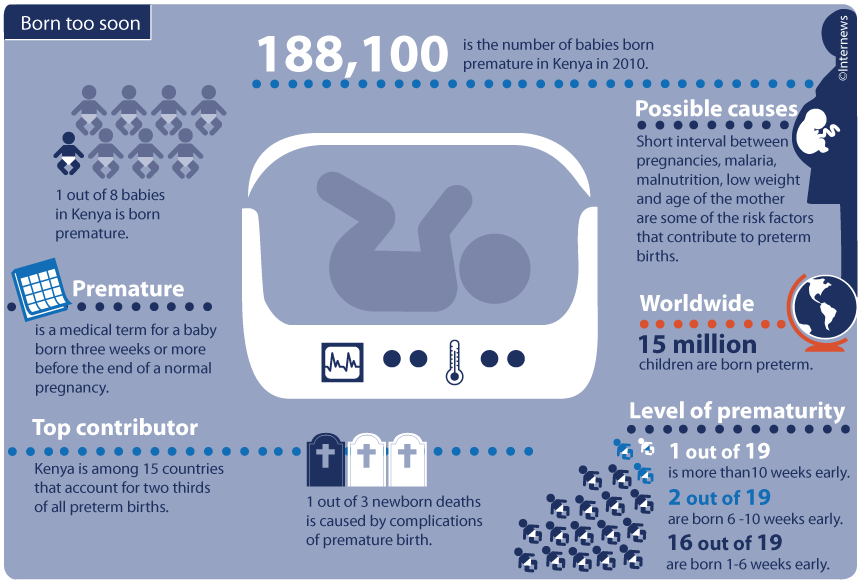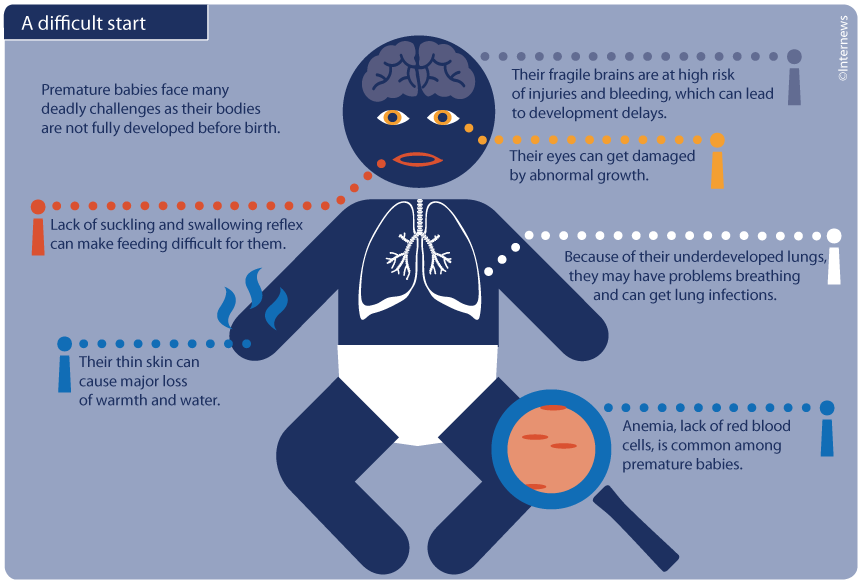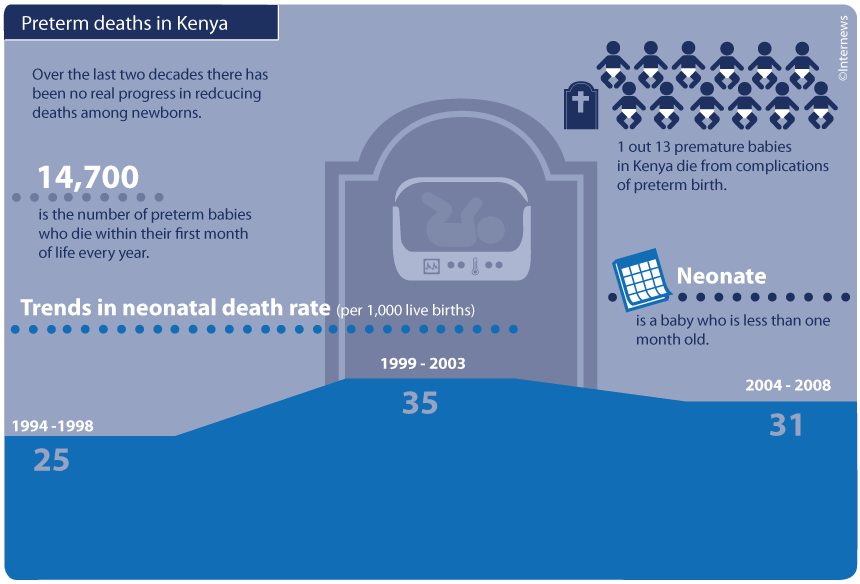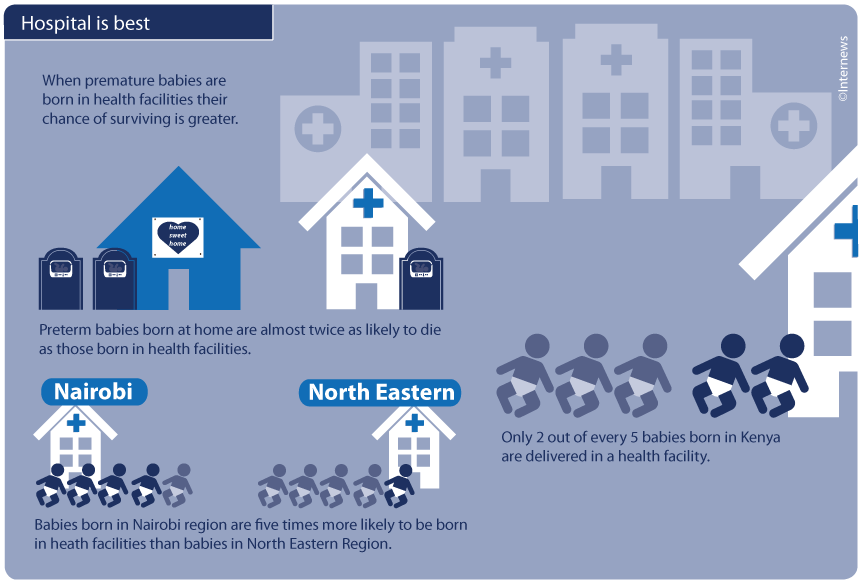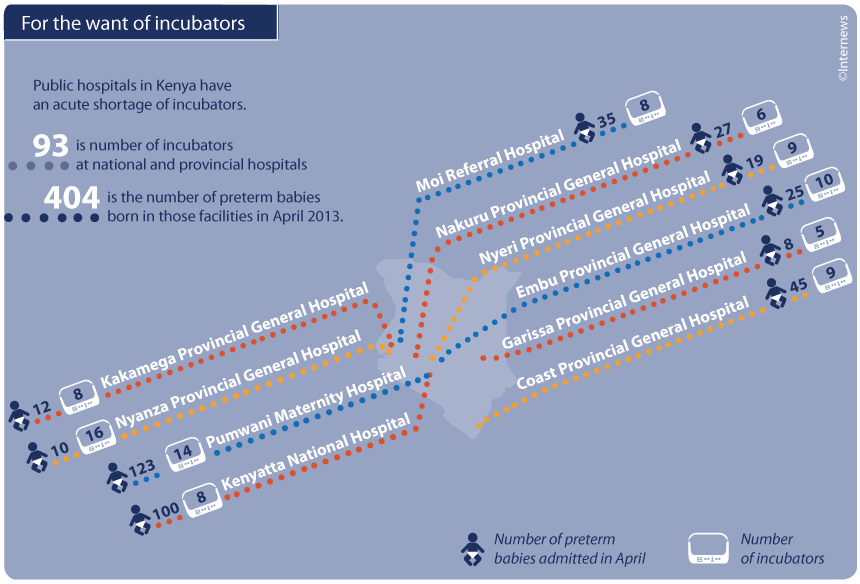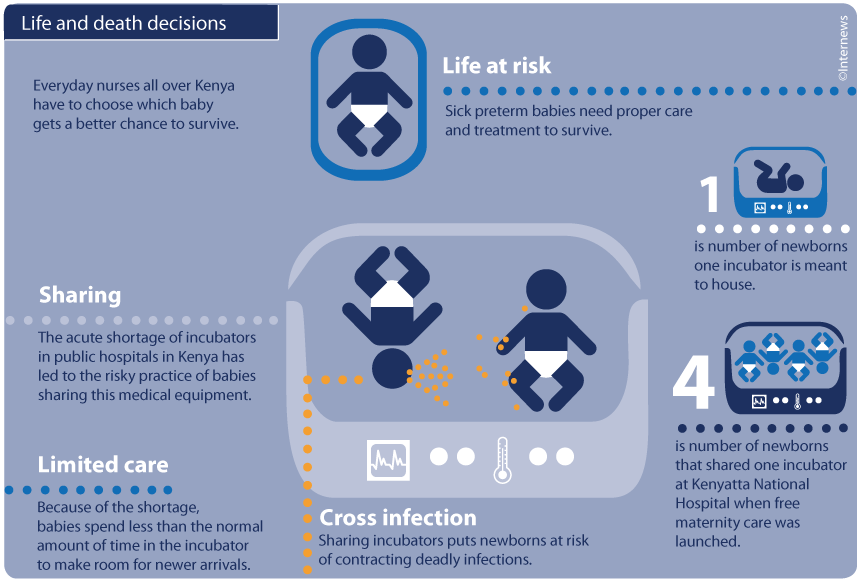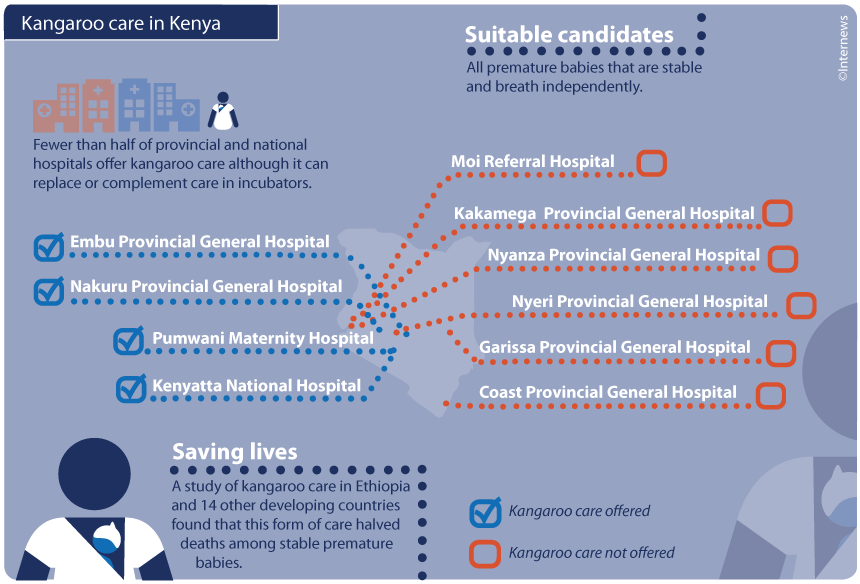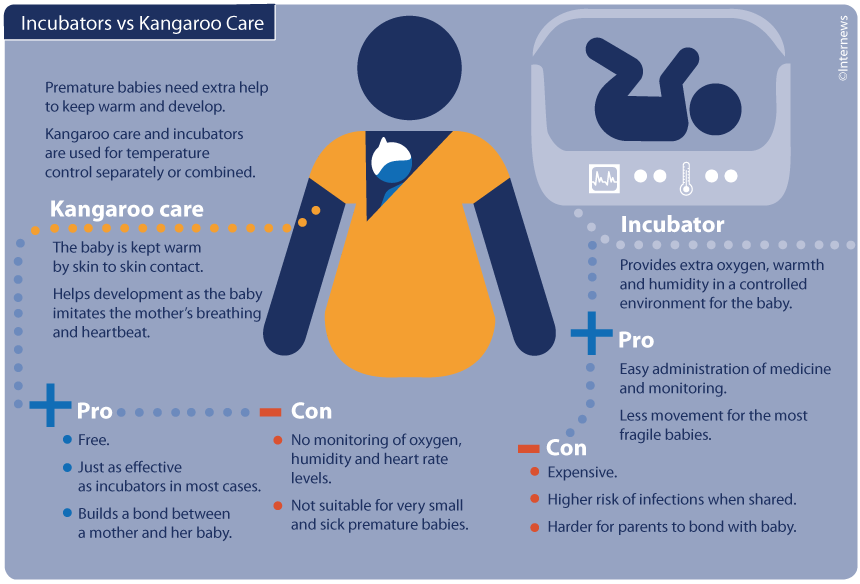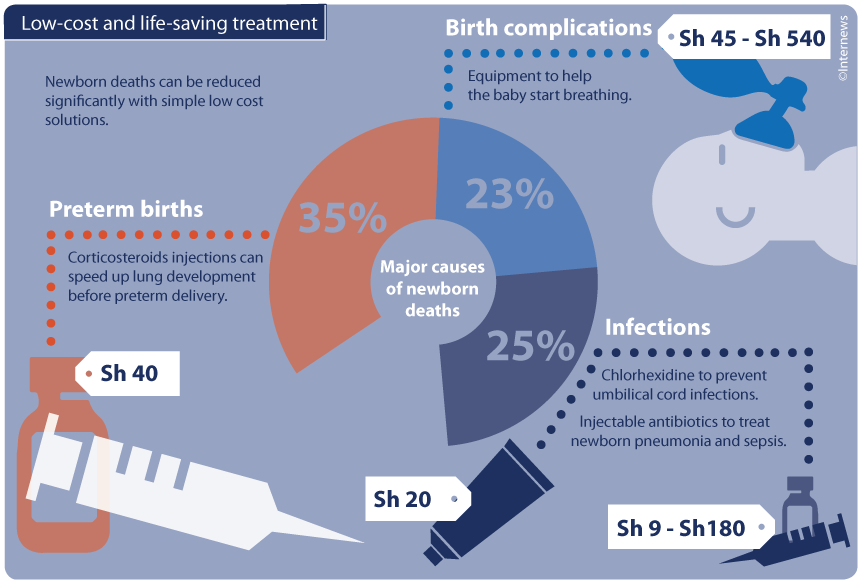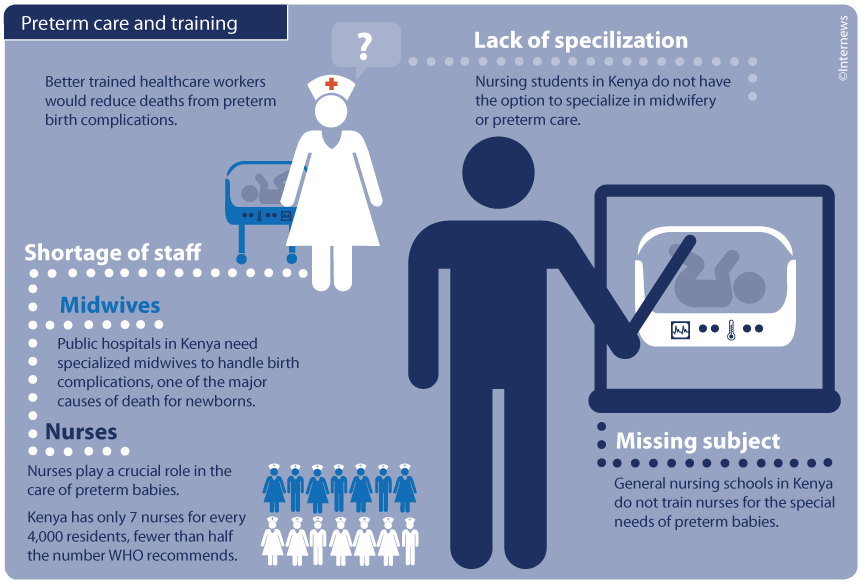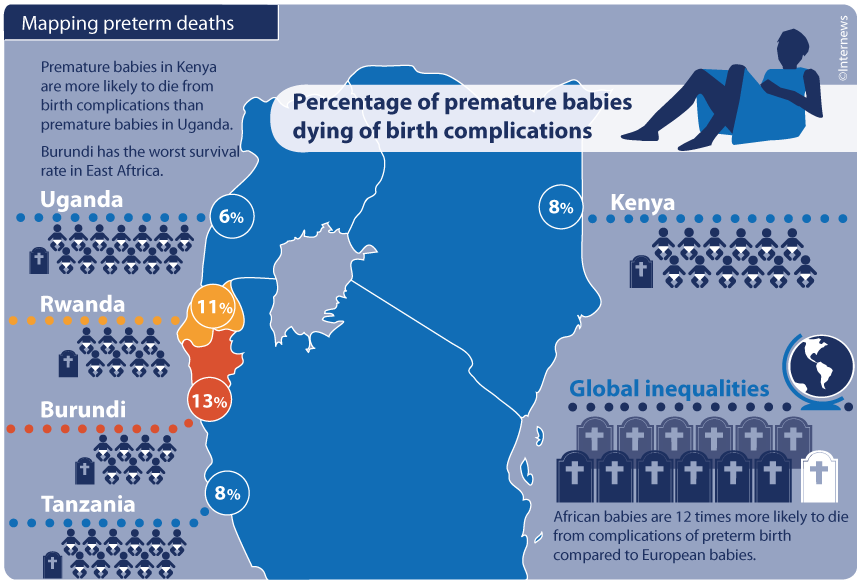Kenya’s high child death rate of 73 per 1,000 children could be greatly reduced if the country were to employ simple and practical solutions to reduce preterm births and complications, which are the leading cause of death among newborns.
A review of data from the Ministry of Health, UN agencies and international organisations working on maternal and child health reveal that one out of eight babies in Kenya is born premature. These statistics place the country among 15 countries that account for two thirds of all preterm births. One out of four premature babies die from complications of preterm birth. More than previously acknowledged, these numbers have a big impact on the country’s child death rate.
Newborn babies face many deadly challenges as their bodies are not fully developed before birth but a growing body of evidence show that with simple low-cost interventions most premature babies can be saved.
To begin with, family planning, preventive malaria treatment in pregnant women and better nutrition during pregnancy would lower the risk of preterm births.
Beyond these measures, Kenya can still employ simple methods such as Kangaroo care – a method of caring for premature babies, skin-to-skin, with an adult – to avert the deaths of babies born too soon. A study of Kangaroo care in Ethiopia and 14 other developing countries found that this form of care halved deaths among stable premature babies. But despite an acute shortage of incubators in public hospitals in Kenya fewer than half of provincial and national hospitals offer Kangaroo care, which can replace or complement care in incubators.
In addition to using Kangaroo care to make a big difference in preterm births, Kenya can engage better trained healthcare workers, promote the breastfeeding of babies within one hour of birth and ensure prompt treatment of infections, particularly sepsis blood infection, pneumonia and meningitis.


